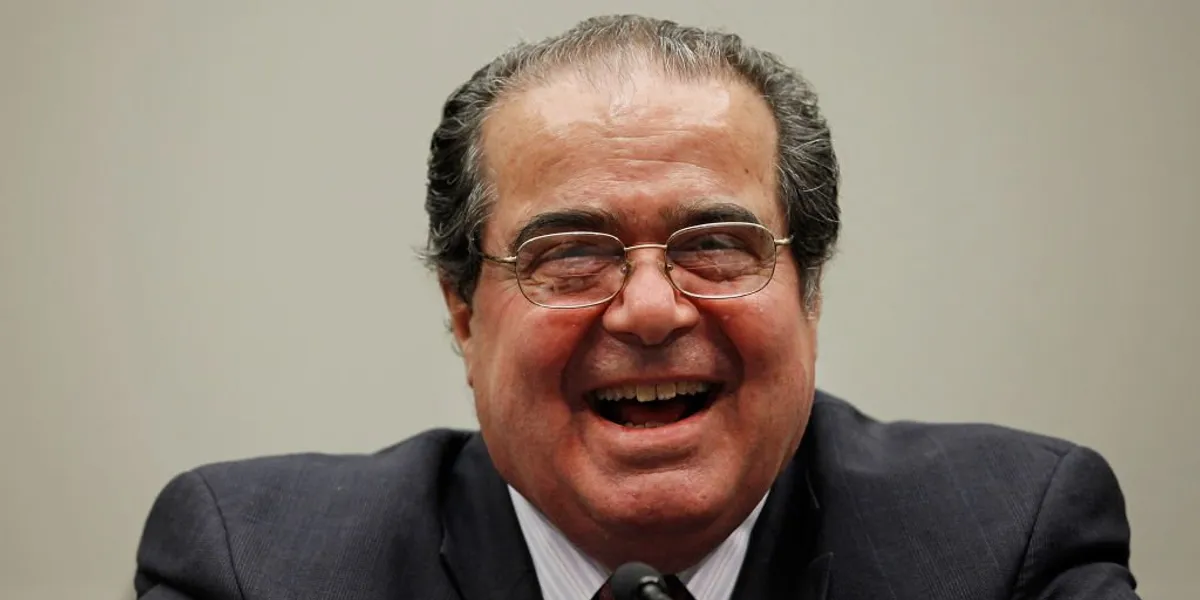When it comes down to it, a job is a job, no matter how well-paid or prestigious, and you’re bound to find yourself watching the clock at some point.
This is why colleagues with a sense of humor are so important — nothing makes the work day fly by like sharing a laugh. For almost 30 years, the judges of the Supreme Court had the privilege of laughing with one of the best: Justice Antonin Scalia.
Those of us who didn’t work with him can still enjoy the wit and verve on display in his oral arguments and written opinions. For example, this 1992 dissent on the constitutionality of school prayer:
I find it a sufficient embarrassment that our Establishment Clause jurisprudence regarding holiday displays, has come to “requir[e] scrutiny more commonly associated with interior decorators than with the judiciary.” But interior decorating is a rock hard science compared to psychology practiced by amateurs. A few citations of “[r]esearch in psychology” that have no particular bearing upon the precise issue here cannot disguise the fact that the Court has gone beyond the realm where judges know what they are doing. The Court’s argument that state officials have “coerced” students to take part in the invocation and benediction at graduation ceremonies is, not to put too fine a point on it, incoherent.
Or this 2001 dissent, from PGA Tour Inc. v. Martin:
If one assumes, however, that the PGA TOUR has some legal obligation to play classic, Platonic golf — and if one assumes the correctness of all the other wrong turns the Court has made to get to this point — then we Justices must confront what is indeed an awesome responsibility. It has been rendered the solemn duty of the Supreme Court of the United States, laid upon it by Congress in pursuance of the Federal Government’s power “[t]o regulate Commerce with foreign Nations, and among the several States,” to decide What Is Golf. I am sure that the Framers of the Constitution, aware of the 1457 edict of King James II of Scotland prohibiting golf because it interfered with the practice of archery, fully expected that sooner or later the paths of golf and government, the law and the links, would once again cross, and that the judges of this august Court would some day have to wrestle with that age-old jurisprudential question, for which their years of study in the law have so well prepared them: Is someone riding around a golf course from shot to shot really a golfer? The answer, we learn, is yes. The Court ultimately concludes, and it will henceforth be the Law of the Land, that walking is not a “fundamental” aspect of golf.
“I attack ideas,” Scalia once said. “I don’t attack people. And some very good people have some very bad ideas. And if you can’t separate the two, you gotta get another day job.”
Scalia’s close, long-lasting friendship with the far more liberal Ruth Bader Ginsberg bore this out. The lightness, humor, and humility with which Scalia carried out even his most serious duties should be a lesson for us all.
